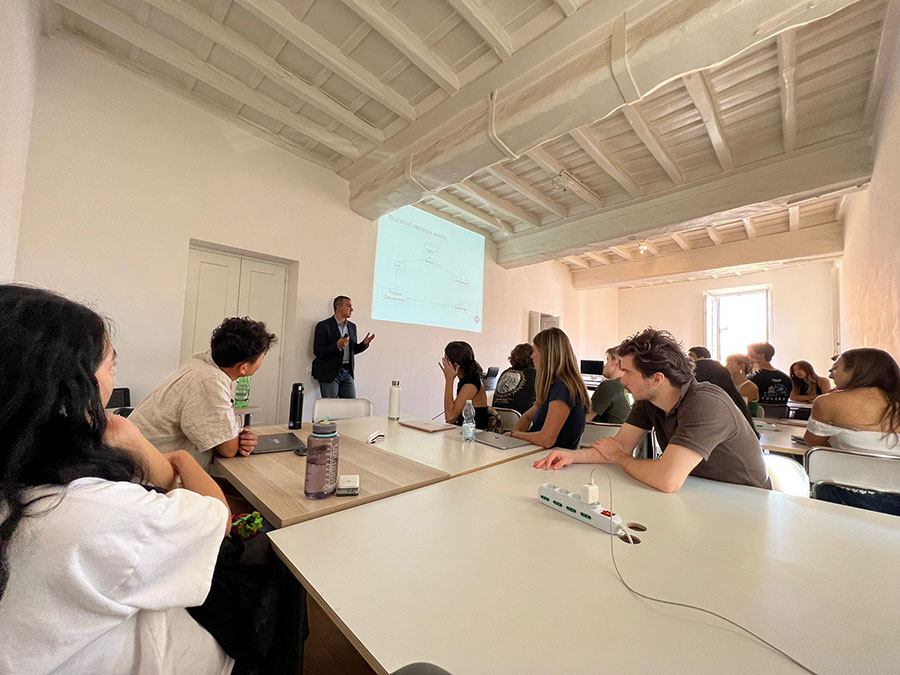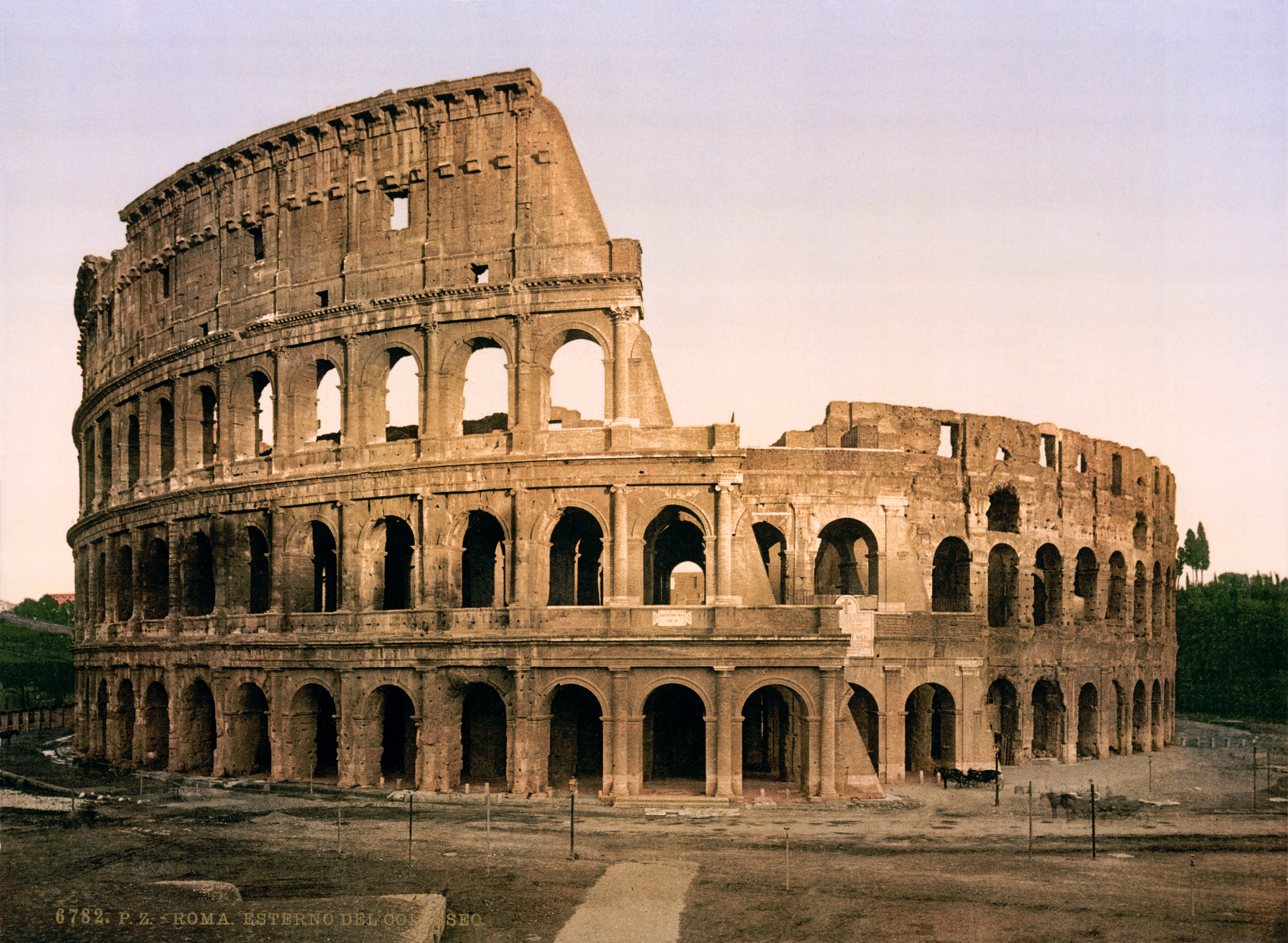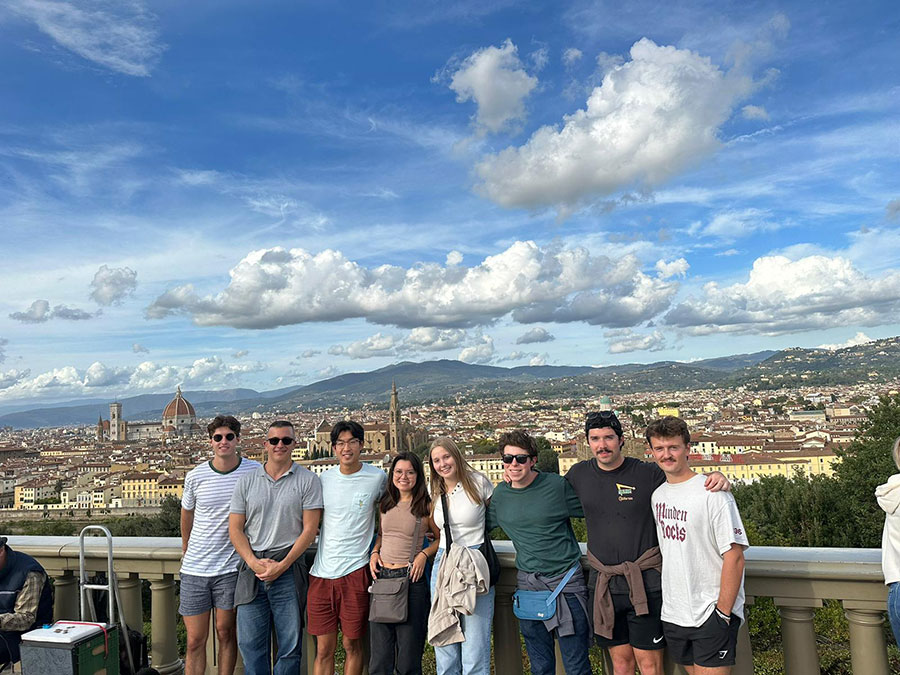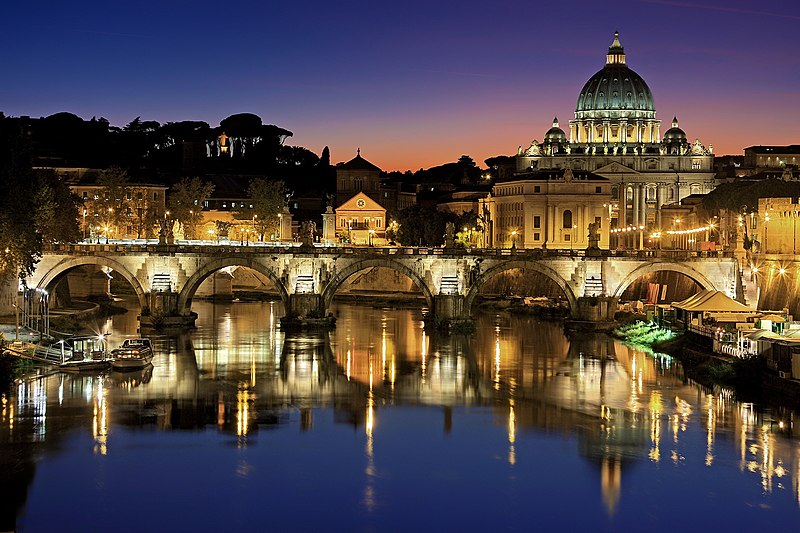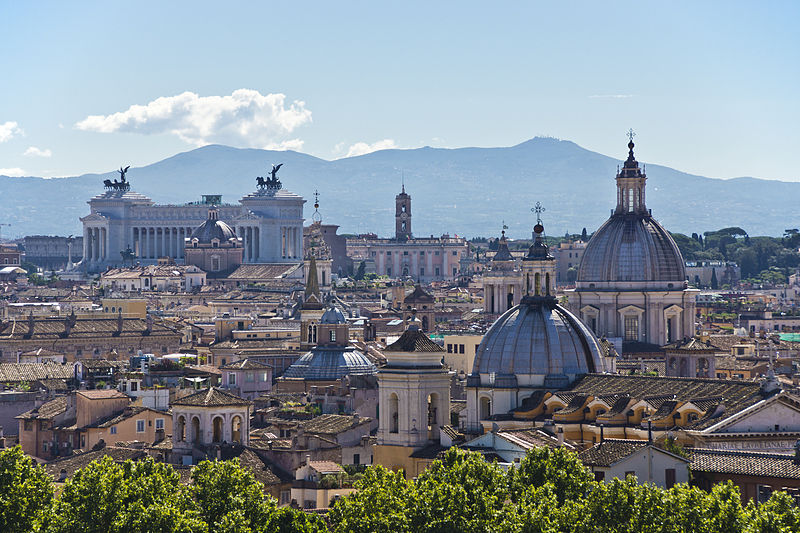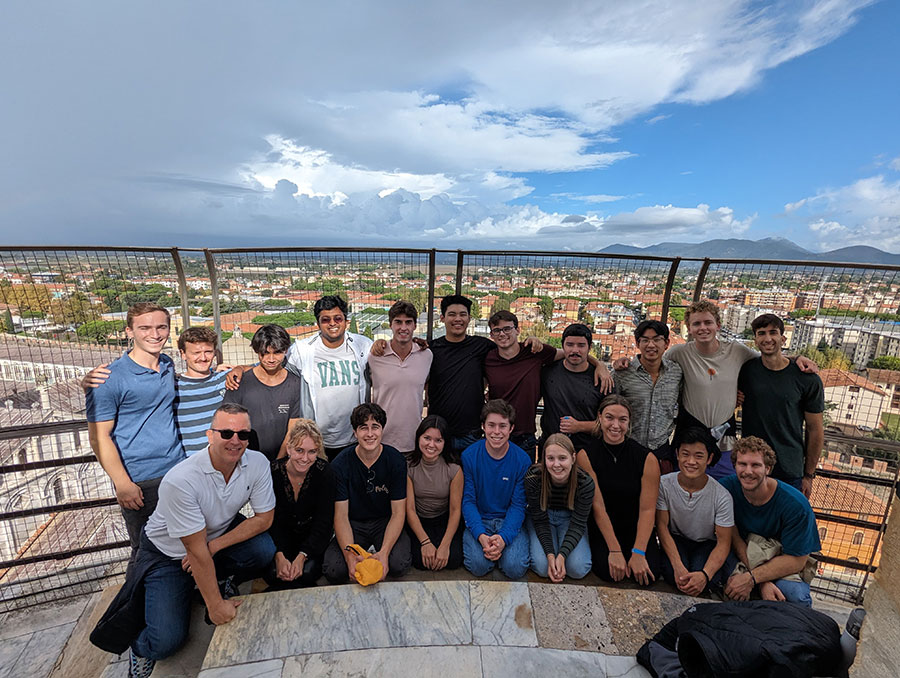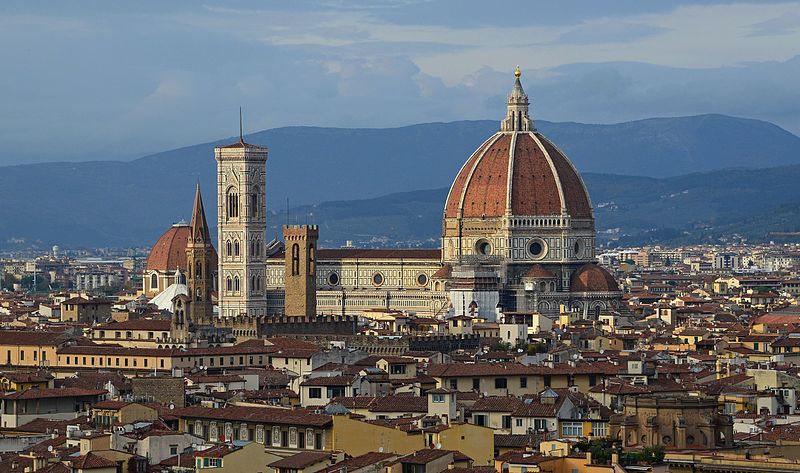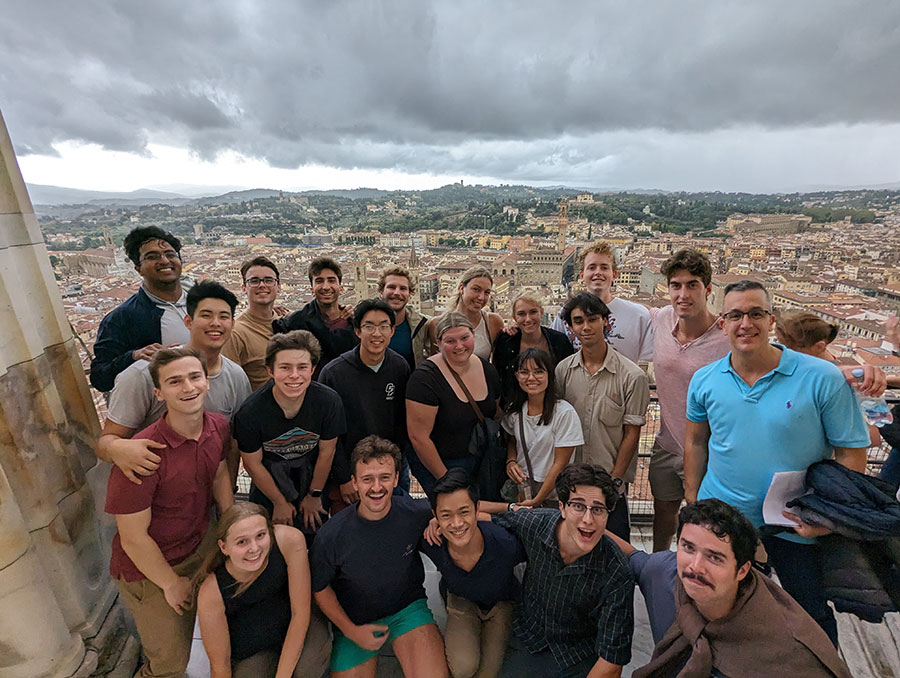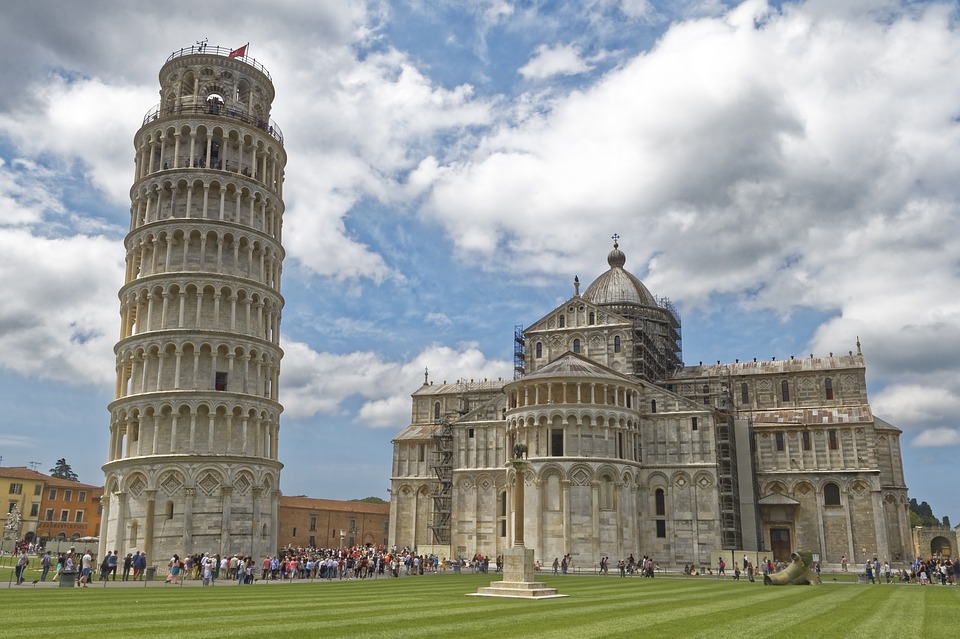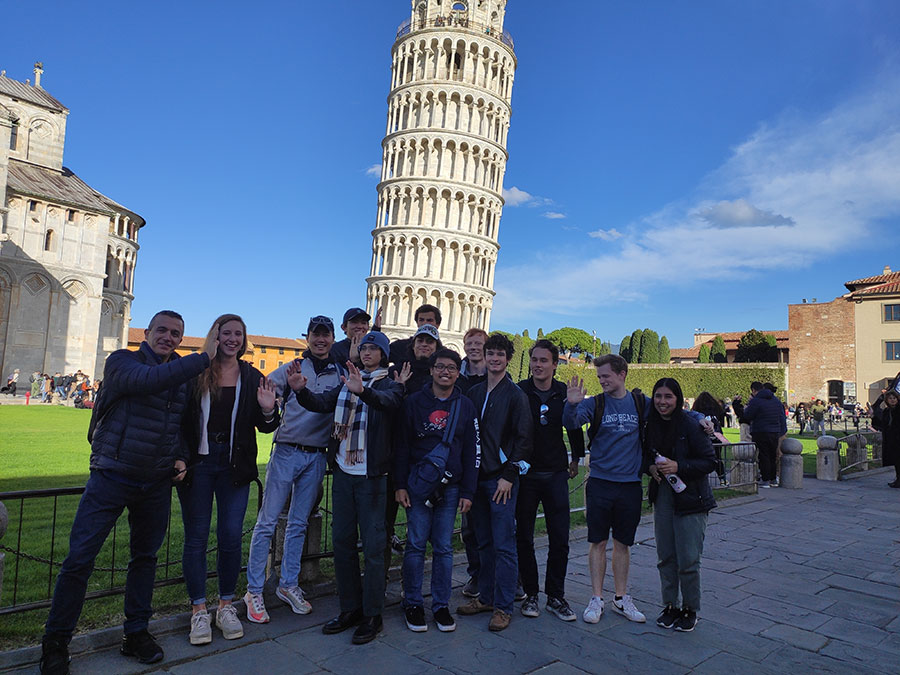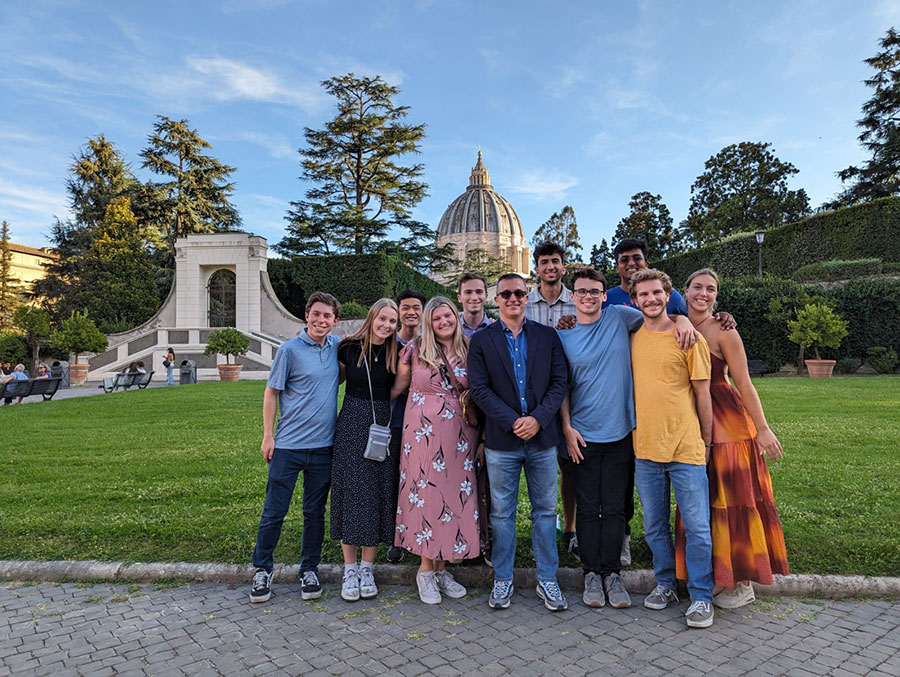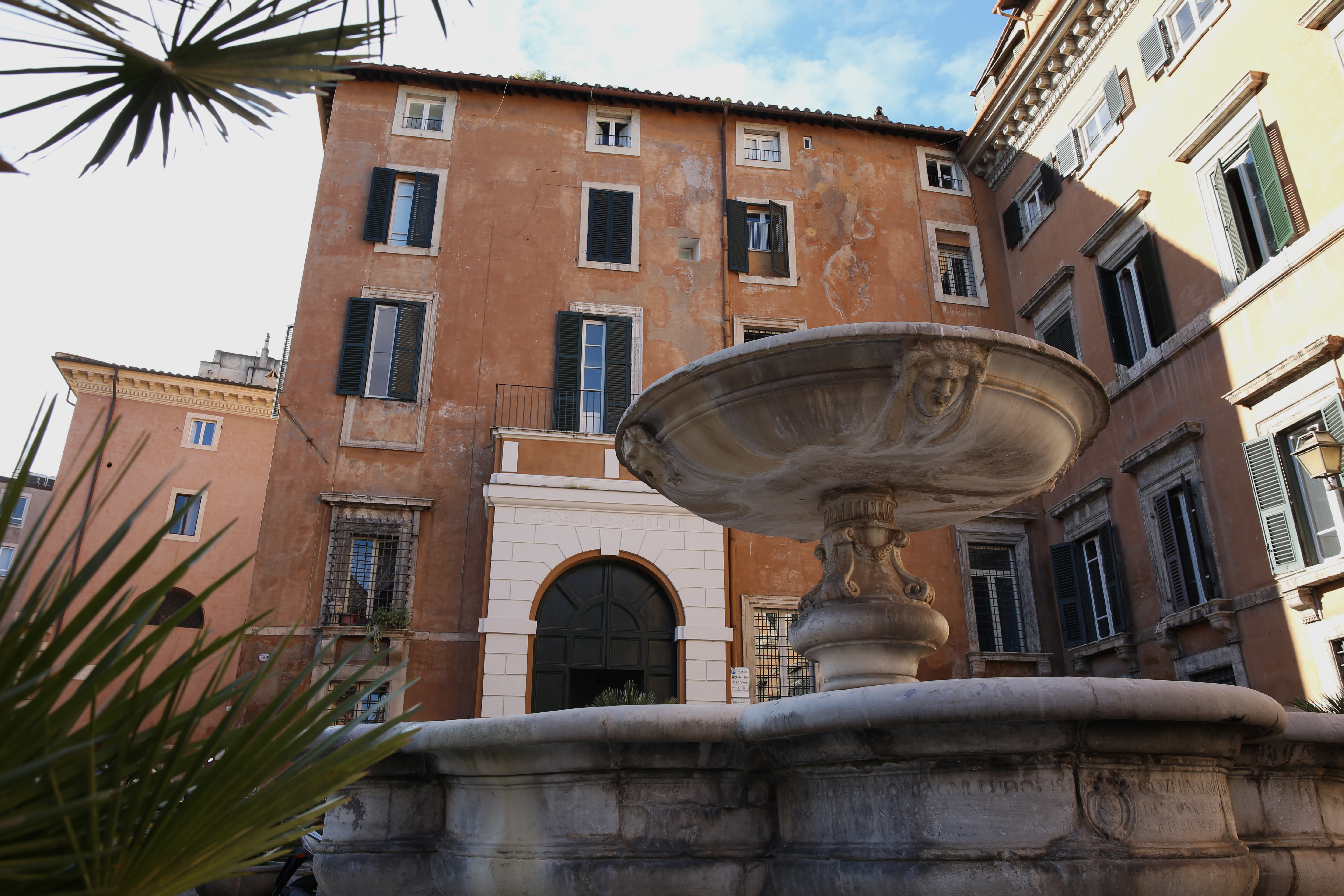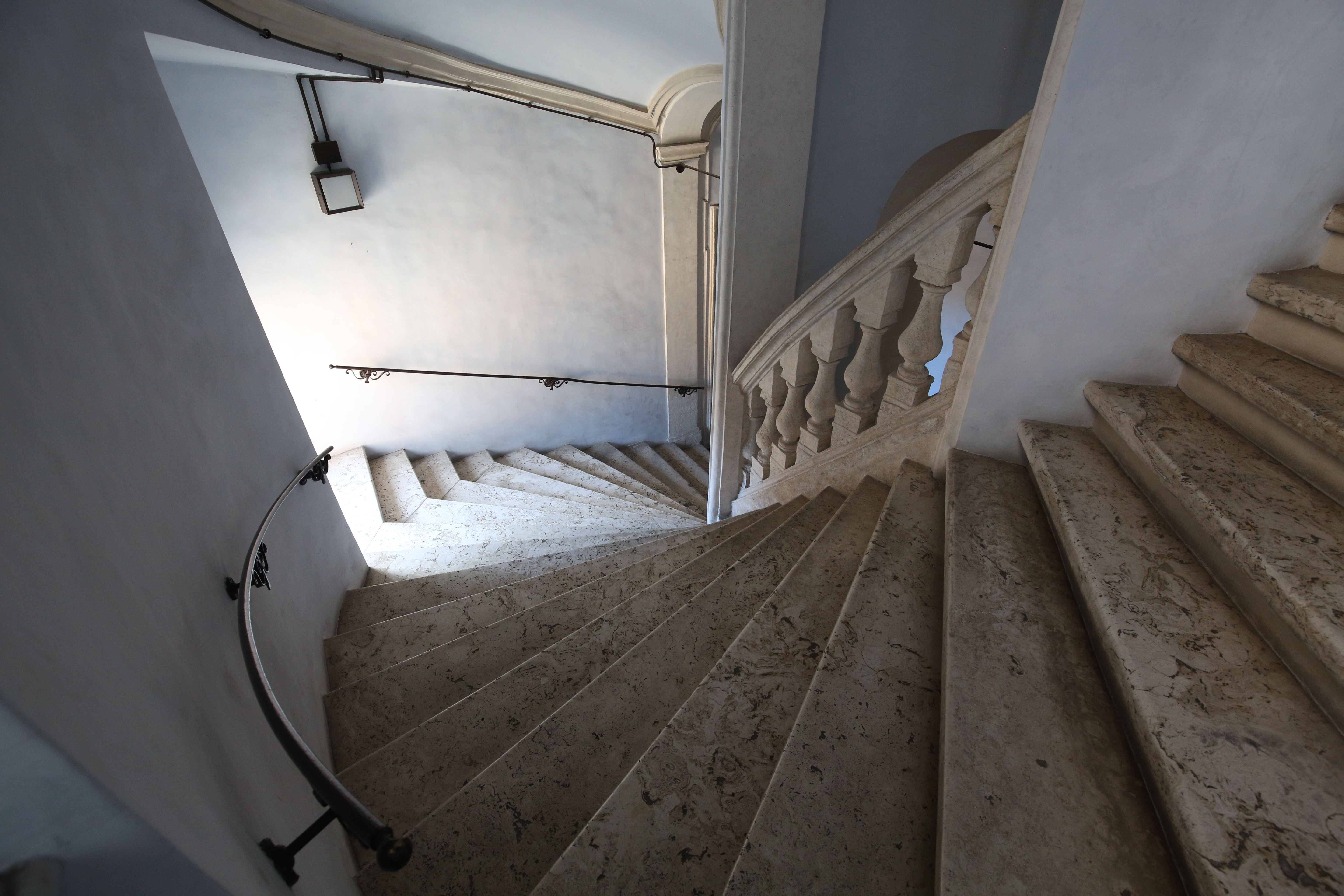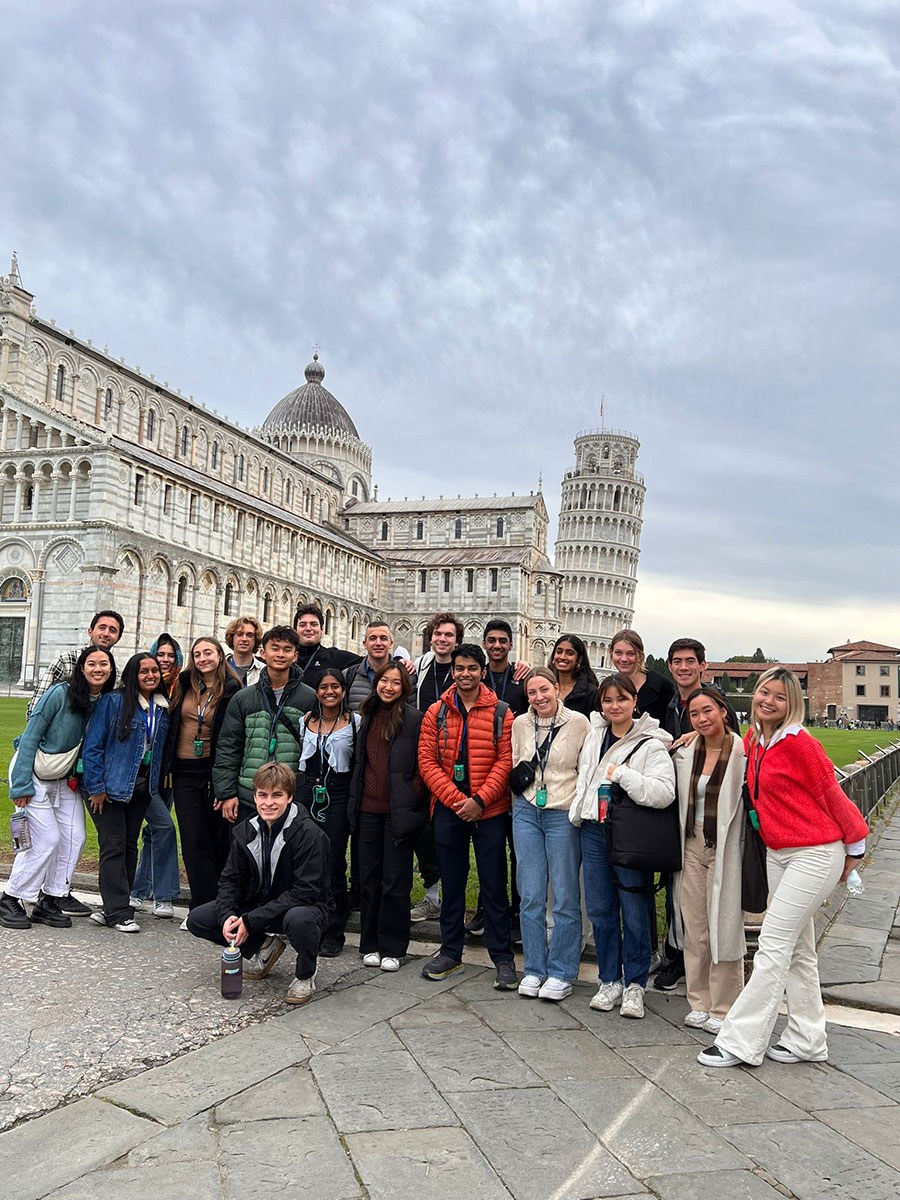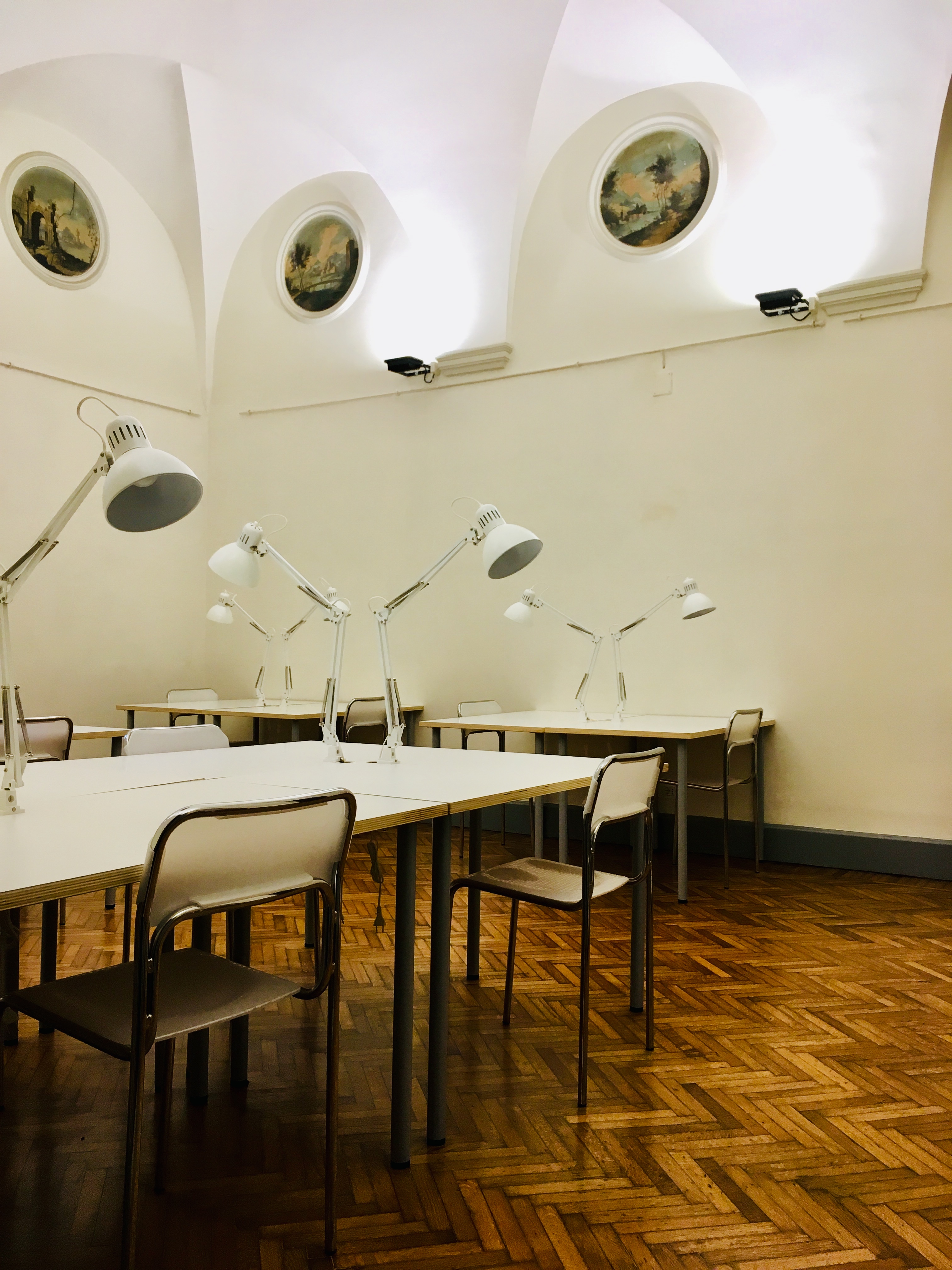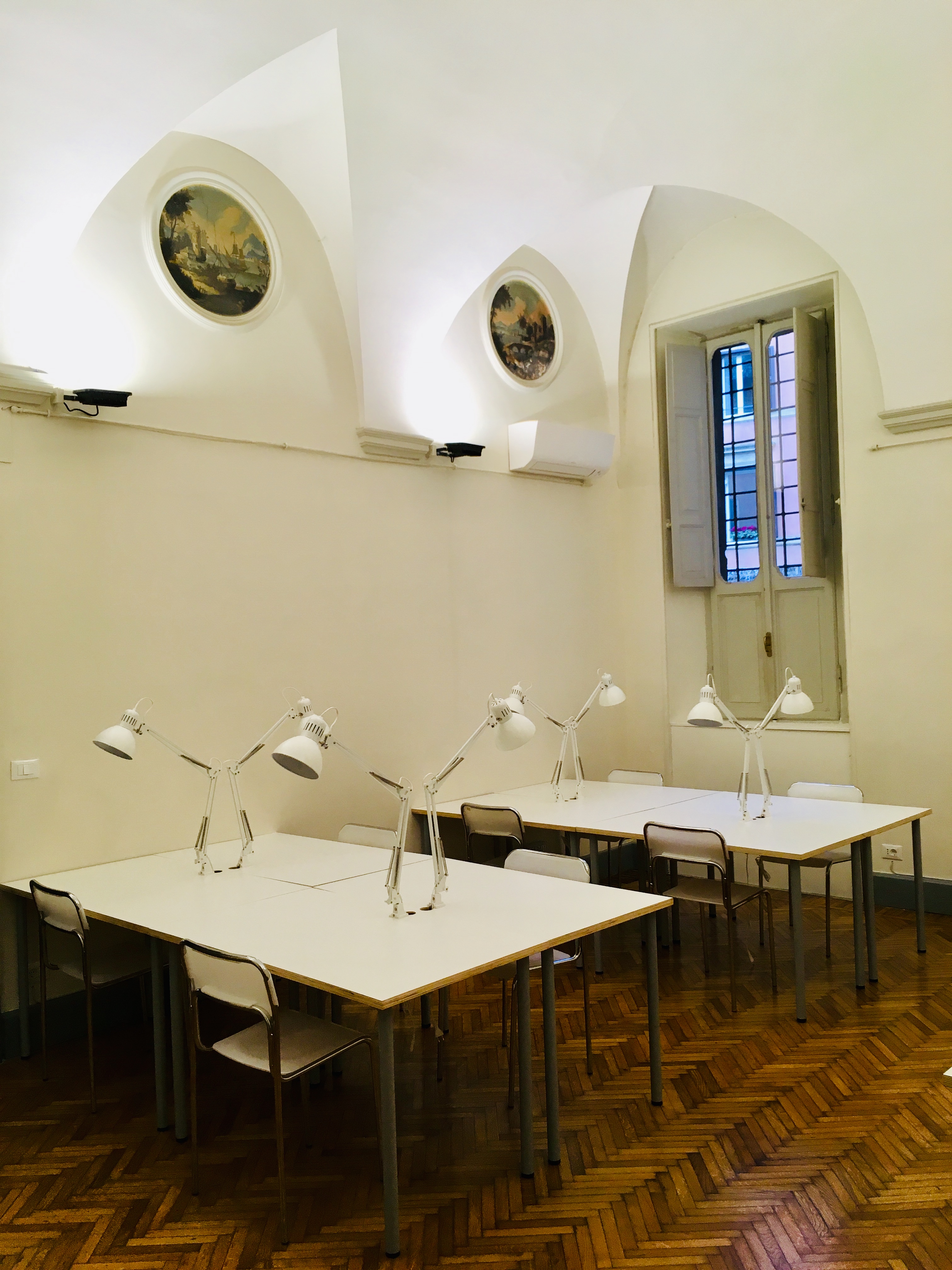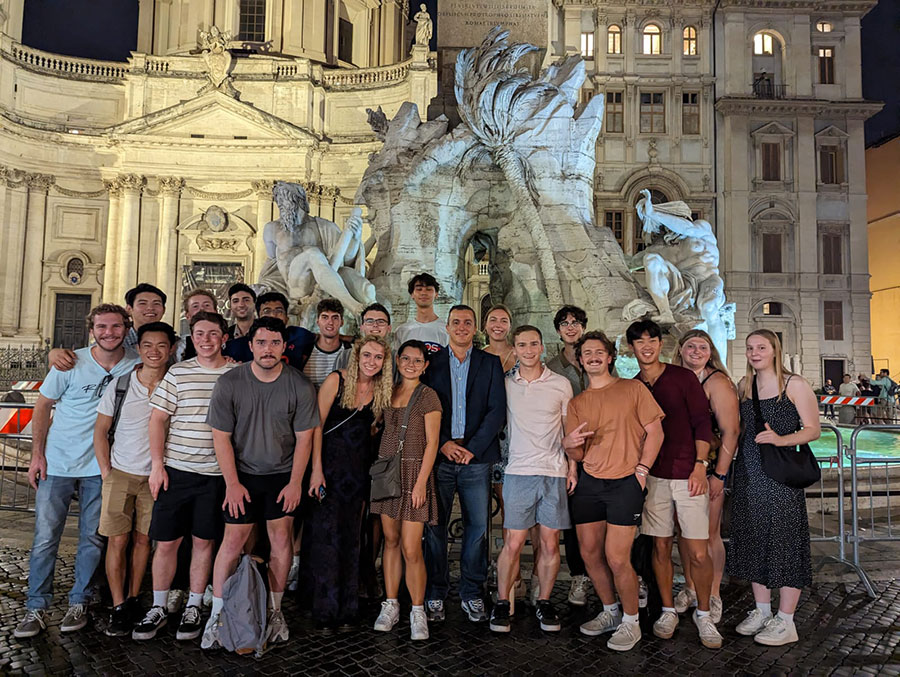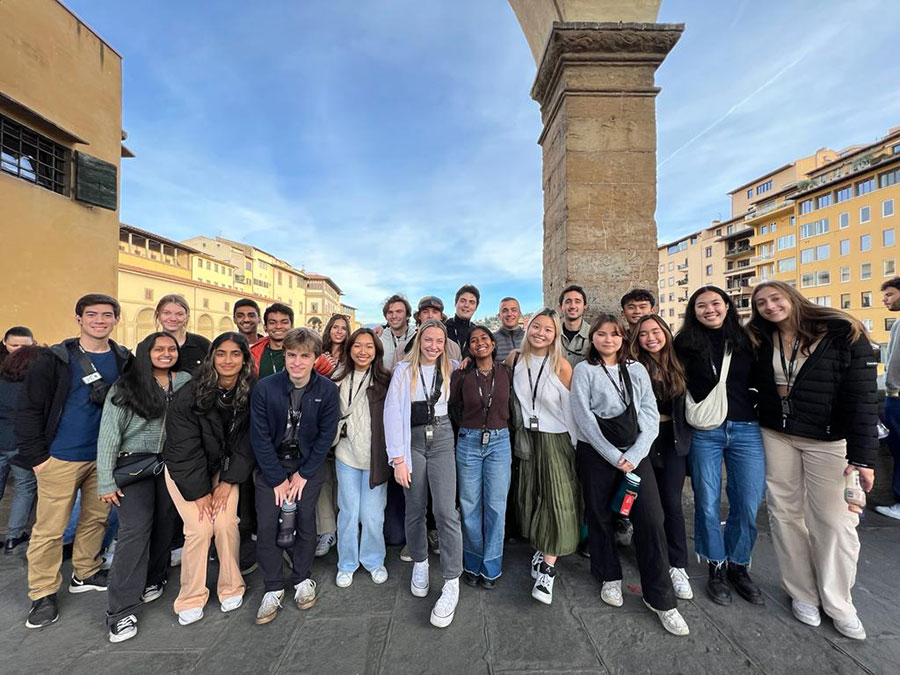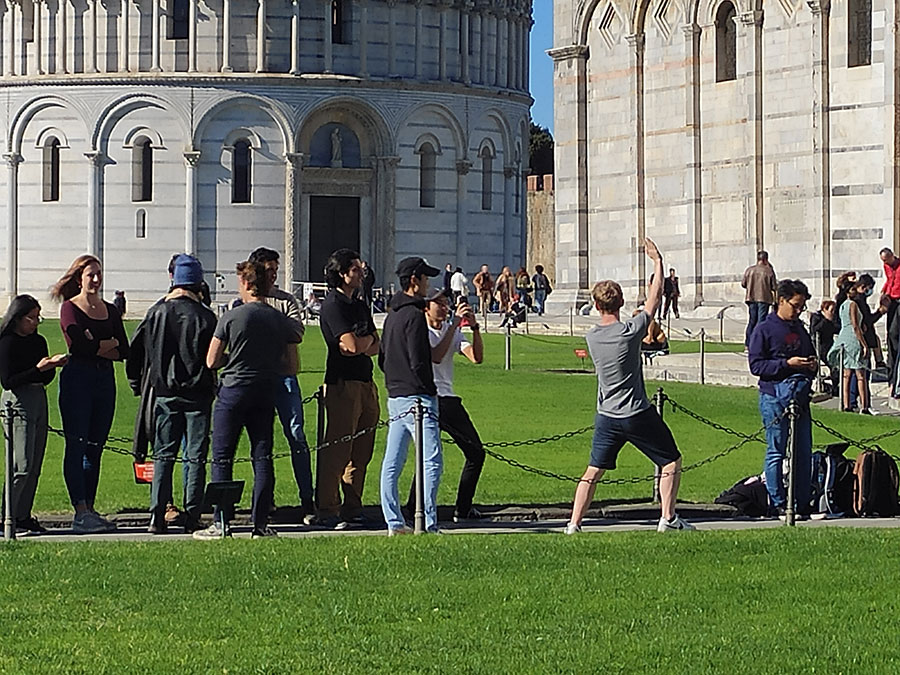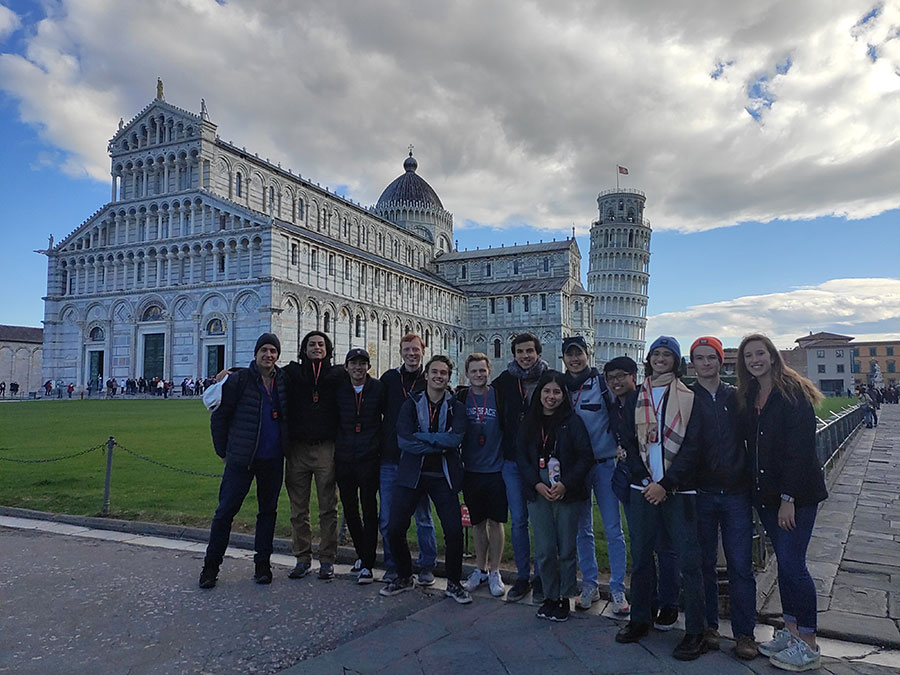Study software engineering while living in Rome during your fall quarter. The Cal Poly Software Engineering in Italy Program will immerse you in a fascinating, foreign culture, while you complete core engineering courses for your degree.
Live as a local as you study in Italy’s capital for 10 weeks. You will study Italian language and culture with a native teacher, and the program includes guided visits to many of the major sites of the Eternal City, day trips to nearby attractions and a three-day field trip to Florence and Pisa.
The program is open to Cal Poly Software Engineering, Computer Science, and Computer Engineering undergraduate students. Participants will earn degree and GE credit, while they experience Italy’s historic and diverse culture and grow as global citizens.
Watch Past Software Students in Italy
https://www.youtube.com/watch?v=fAbBg4oUCdI
At a Glance
- Where: Rome, Italy
- When: September 19, 2026 to November 28, 2026
- Facilities: AIA Rome Center, Palazzo Cenci-Bolognetti
- Housing: Shared apartments with equipped kitchens
- Field Trips: one 3-day, 2-night field trip to Florence/Pisa
- Credits: 12 units granted by Cal Poly for 3 courses
Rome, Window on Past and Future
Rome, for thousands of years, has been an anchor of Western culture. Today Rome is a vibrant metropolis that reflects a dense fusion of human creativity, from ancient ruins to renaissance palaces, from its domed skyline to the masterpieces that fill its museums. Rome, and Italy, also showcase world-class modern industry, research and design that look to the future. As such, Rome continues to offer a broad window onto the sweep of Western culture, past, present and future.
Courses
CSC-308 Software Engineering I
Cal Poly Faculty – Davide Falessi (4 units)
CSC-309 Software Engineering II
Cal Poly Faculty – Davide Falessi (4 units)
ITAL-141 Elementary Italian I Study Abroad
AIA Faculty – Claudia Cremasco (4 units)
Special Activities
Local Professional Exposure
Course instruction will include the regular participation of a local professional Software Engineer to develop practical skills addressing real-world issues.
Cultural Visits
Organized group visits will guide students through Italy’s incomparable culture. Visits will include a guided walk through the streets and piazzas of Rome’s historic center, and a half-day visit to the Colosseum, Roman Forum and Palatine Hill with local experts on Rome’s history and archeology. Students will tour the world-famous Vatican Museums and Sistine Chapel with an art history professor.
Field Trips
The program will visit beautiful and important sites across Italy. Exact daily activities may vary slightly from the itineraries described be low.
Day Trip to Ostia Antica
Students will travel by a local train to the ancient Roman town of Ostia Antica, where they will be guided along the streets, shops, houses, baths and temples of this remarkably well preserved ancient port town near Rome.
Three Day Field Trip to Florence
The group will depart Rome on a Friday morning, traveling by high-speed rail to Florence, and stay two nights in a comfortable hotel in Florence’s historical center. The field trip will include guided visits to Florence’s Duomo complex, to the Uffizi Gallery, home to one of the most renowned art collections in the world, and to the Museum of Science and Technology. Visits will be led by local art and science historians and Florentine history experts, and students will have free-time to explore the city on their own.
Day Trip to Pisa
On Saturday of the Florence weekend, the group will take a day-trip to nearby Pisa. The group will travel from Florence to Pisa by train in the morning to meet an expert local guide for a walking tour of Pisa, passing by Galileo’s house, on the way to the Campo dei Miracoli (Pisa’s famed Cathedral and leaning tower complex). That afternoon the group will also visit Pisa’s Museum of Computational Machines. The expert-guided tour of this computing history museum should be a fascinating visit for software engineering students.
Independent Travel
Rome is a hub for exploring Italy, Europe and the Mediterranean. Many students travel on their own on weekends and before or after the program.
Culinary Traditions
The group will get to know each other and local culinary traditions through three complete and authentic group meals and two mixers. These will begin with a light aperitivo mixer to kick-off the program with students, faculty and AIA staff. You’ll enjoy a a multi-course welcome dinner in a traditional Roman restaurant, and taste local cuisine at a group dinner when you travel to Florence. A final farewell aperitivo and dinner in Rome will offer a chance for everyone to say goodbye over plates of hearty Roman fare.
For daily dining, student apartments offer equipped kitchens where students can cook their own meals with groceries they can pick up at nearby shops and local farmer’s markets.
Students can eat at their apartments and step out of AIA facilities for a bite between classes. Rome offers many opportunities for quick lunches from pizza to panini, and coffee bars line the streets for breakfast and afternoon snacks.
Student Housing
Student housing in Rome is safe, central and clean, and is located near the historic city center. Lodging is convenient to the AIA Rome Center and easy to reach by public transportation or walking.
Program students will share private group apartments or dorms, with typically 2-3 beds per room, and modern baths, kitchens and common space. These apartments include on-site maintenance and weekly cleaning of common areas, and are equipped with WiFi, washing machines, furnished kitchens and all necessary linens and towels.
Facilities
Study in a Roman palace. AIA Rome Center’s facilities are located in the heart of Rome’s historical center in the Piazza delle Cinque Scole in Palazzo Cenci Bolognetti, a 16th-century palace in the picturesque Ex-Jewish Ghetto neighborhood. The Rome Center is surrounded by food and shopping opportunities, cultural sites, open spaces, public transit and medical facilities.
Facilities in the palazzo include Wi-Fi equipped classrooms, a library and special books collection, common spaces and a terrace, as well as a lab with basic printing and copying facilities.
Faculty
Davide Falessi
Davide Falessi is the program leader and an associate professor (Department of Engineering) at the University of Rome Tor Vergata. Falessi was born, grew up and was educated in Rome, and has been an Associate Professor at the California Polytechnic State University, USA, from 2015 to 2019.
Falessi is a very active researcher. He is involved in the research community by organizing international events, participating in the most prestigious editorial boards of scientific journals, and leading national and international research projects on computer science. He is the author of about a hundred international scientific publications, totaling almost three thousand citations.
Falessi has been teaching software engineering university classes for about twenty years. He loves teaching and believes that teaching can positively impact society by shaping future generations of innovators in a critical domain such as computer science.
Contact Prof. Falessi at dfalessi@calpoly.edu
Claudia Cremasco
Claudia is AIA’s Coordinator of Language Instruction and an award-winning language teacher with a Laurea in Literature from Rome’s La Sapienza University. Since 1988, she has taught and coordinated Italian language instruction at many universities in Italy and the USA, including Harvard University, Cal Poly State University and Northeastern University. She has been teaching Cal Poly students Italian Language and Culture since 2002.
Program Support
This program is managed for Cal Poly by Academic Initiatives Abroad through the AIA Rome Center and its local partners. AIA provides program management and student services including: pre-departure information, orientation, housing and facilities assistance, on-site cultural activities and field trip support. AIA is a respected study abroad provider with significant experience in Italy programs. Learn more about AIA.

